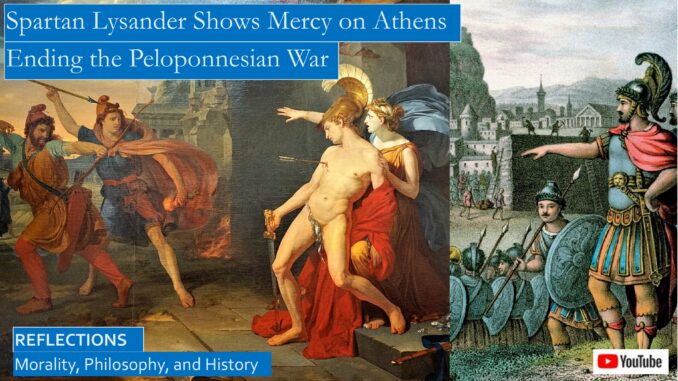
Lysander was appointed as the Spartan naval commander near the end of the war. He was both an effective military leader and an able diplomat, negotiating Persian assistance from Cyrus the Younger in building and funding the fleet of triremes that would check Alcibiades and the generals who succeeded him, eventually winning the Peloponnesian Wars. We will consult Plutarch’s Life of Lysander, and also Thucydides and Xenophon, since Thucydides’ history ends soon after the Oligarchic coup, where it is picked up by Xenophon.
YouTube video for this blog: https://youtu.be/giNzqNoOH3Y
YouTube script with more book links: https://www.slideshare.net/BruceStrom1/spartan-lysander-shows-mercy-on-athens-ending-the-peloponnesian-wars
Link to view complete series of blogs on the Peloponnesian Wars:
https://seekingvirtueandwisdom.com/category/peloponnesian-wars/
Link to view complete series of videos on the Peloponnesian Wars:
https://www.youtube.com/watch?v=szi7-9QQWI0&list=PLJVlY2bjK8lg2pivnGN3m13VI8YstKs0T
SUMMARY OF PRECEDING YEARS OF PELOPONNESIAN WARS
The Peloponnesian Wars followed the Greco-Persian Wars by about fifty years, or as Thucydides describes it, the Pentecontaetia. We review the role of the Athenian generals in founding the defensive Delian League, the future Athenian Empire after the end of the Greco-Persian Wars. We consulted both Plutarch and Thucydides to tell the story of Pericles up through his death by the plague in the second year of the Archidamian War, the first phase of the Peloponnesian Wars.
After the war-hawk generals of both Athens and Sparta were killed in battle, Nicias negotiated the Peace of Nicias, which although it was not very peaceful, it did end direct hostilities between Athens and Sparta for nearly seven years.
But the Peace of Nicias was broken when Alcibiades agitated for Athens to send out a large portion of its triremes, plus thousands of hoplites, in the doomed Sicilian Expedition. The talented general Alcibiades was indicted on trumped up charges and went into exile in Sparta when his conviction appeared certain. When the Syracusans defeated the dilatory and timid Nicias, the Athenians lost everything, triremes, hoplites, rowers, even generals were destroyed and slain, very few escaped, and Sparta restarted the war in response to Athenian aggression and her loss in Sicily.
Alcibiades was exiled from Sparta after he slept with the king’s wife, and she gave birth to their son, and he fled to the court of the Persian satrap, Tissaphernes, who was allied to Sparta. He advised Tissaphernes that he should not decisively support either Athens or Sparta, but keep them evenly matched so they could wear each other out, so Persia could then swoop in and take over. The Persians under Tissaphernes brought the Ionian Greek city-states, particularly those on the coast of Asia Minor, back under Persian control.[1]
Alcibiades maneuvered to be reappointed as general of the Athenian forces, and likely could have won the war for Athens if the Athenian Assembly were not so hyper-critical.
Video for Alcibiades:
Alcibiades maneuvered to be reappointed as general of the Athenian forces, and likely could have won the war if the Assembly did not have unrealistic expectations that he would win all battles and never make a mistake.
We will cut a general video on Sparta in the near future, this video on Lysander will cover the final phase and final defeat of Athens in the Peloponnesian Wars, that last over two decades, and two generations of combatants.
PLUTARCH’S LIFE OF LYSANDER
Plutarch says only this about his early years, “Lysander was brought up in poverty,” and like a good Spartan, “he had a manly spirit, superior to all pleasures.” Like all good Spartans, he felt “pain at disgrace, and exalted when commended,” and these qualities enhanced his virtue. “Ambition and the passion for distinction were imbedded in his character by his Laconian education.” “Lysander was submissive to great men, beyond what seems to be agreeable to the Spartan temper and could easily bear the haughtiness of those who were in power.”
“Lysander endured poverty, and he was not at all enslaved or corrupted by wealth, yet he filled his country with riches and the love of riches.” Although he “imported an abundance of gold and silver after the Athenian war, he did not keep one drachma himself.”
The historical sources reveal little about the youth of Lysander, which perhaps reflects the Spartan custom of placing youths in military training camps beginning at a very young age.
SELECTION OF LYSANDER AS SPARTAN COMMANDER
Plutarch describes when Lysander was pressed into service. After the disaster in Sicily, Athens was no longer the master of the sea, and was challenged everywhere. But “Alcibiades, returning from banishment, took the command, produced a great change, again making the Athenians a match for their opponents by sea; and the Lacedaemonians, greatly alarmed, with fresh courage and zeal,” seeking “an able commander with powerful armaments, selected Lysander as Admiral of the Seas.”[2]
The King of Persia sent his younger son, Cyrus the Younger, to administer the Ionian provinces, and to assist the Spartans in their war efforts. Professor Kenneth Harl of the Teaching Company comments that Lysander and Cyrus had an excellent working relationship, that Cyrus respected the competency of Lysander, and saw in Lysander a Spartan leader who could win battles when fighting the Athenians.[3]
Xenophon reports, “Lysander went inland to visit Cyrus, and took with him the ambassadors from Sparta. They lost no time in telling Cyrus how badly, in their opinion, Tissaphernes had behaved, and they begged him to take a really serious and energetic part in the war. ‘That,’ said Cyrus, ‘is exactly what my father, the king, has asked me to do and that is what I mean to do myself. I shall do all that I can.’ He told them that he had brought five hundred talents with him. If that was not enough, he said, he would use his own money,” “and if that also ran out, he would break up his throne of silver and gold on which he sat.”[4]
Cyrus asked him what he wanted in the conflict, and Lysander said, “Since you are so very kind, I earnestly request you to add one penny to the seaman’s pay, so that instead of three pence, they may now receive four pence,” which meant that now their pay would exceed that of the Athenian rowers for the first time in the war, tempting some mercenary rowers to switch sides for a pay raise.[5]
Thucydides writes, “the Spartans often proved to be remarkably helpful enemies for the Athenians. For Athens, particularly as a naval power, was enormously helped by the very great difference in the national characters, the Athenian speed versus the Spartan slowness, Athenian enterprise versus the Spartan lack of initiative.”[6]
Xenophon likewise notes that Lysander was not an aggressive commander. Although “Lysander had distracted and weakened his enemies, he was afraid to engage by sea, Alcibiades being an energetic commander, having a superior number of ships,” “unconquered in both land and sea.”[7]
This caution did not mean Lysander was a timid commander like Nicias was, but it did mean that he understood the strengths of the Athenian fleet, and his fleet’s weaknesses, so Lysander was cautious. Alcibiades was a brilliant commander, so Lysander often avoided open combat, waiting for his enemy to make a mistake.
In this respect, Lysander can be compared to the later Roman general Fabius, who faced the brilliant Carthaginian General Hannibal after he wiped out two Roman armies through brilliant battlefield tactics, after he marched his war elephants over the Alps with his army into Italy. Fabius’ surname was Cunctator, or delayer, and he was one of the first general to employ guerilla tactics, avoiding pitched battles that he could lose against Hannibal, constantly dogging and ambushing the forces of the enemy, wearing him down since his supply lines were so long, waiting for the enemy to make a mistake that he could capitalize on.[8]
ALCIBIADES IS RELIEVED OF COMMAND AND GOES INTO EXILE
The Athenians expectations for Alcibiades, since he was such a skilled general, were so high that they would not tolerate any mistakes, and unfortunately, he made a mistake. Alcibiades left the fleet in Samos to attend to a military matter in the Hellespont, leaving his helmsman Antiochus in charge of the fleet, with strict instructions not to engage the enemy in his absence. This was a mistake that Lysander took advantage of, luring Antiochus into a naval engagement, the Spartan fleet was orderly, the Athenian fleet was disorganized, and although the Athenians did not suffer high casualties, but Athens lost fifteen triremes, damaging the perfect reputation of Alcibiades,[9] who went into exile in his castle near the Hellespont.
Will Durant has an excellent retelling of the history following the exile of Alcibiades. “Desperate, the Athenians ordered that the gold and silver in the statues on the Acropolis should be melted down to build a new flotilla of a hundred and fifty triremes, and offered freedom to those slaves, and citizenship to those aliens, who would fight for the city. The new armada defeated a Spartan fleet near Lesbos, and Athens once again thrilled with the news of victory.”
Will Durant continues, “But the Assembly was furious when it learned that its generals had allowed the crews of twenty-five ships, sunk by the enemy, to drown in a storm. Hotheads protested that these souls, for lack of proper burial, would wander restlessly about the universe; and accusing the survivors of negligence in not attempting a rescue, they proposed that the eight victorious generals should be put to death.”[10]
The Athenians, experiencing easy victories, thought all victories are easy, and even after Alcibiades was gone, asked too much of their generals. There was a hard-fought naval battle with the Spartans, and although there was a great Athenian victory, some Athenian ships were wrecked, and her crews were clinging precariously to the wreckage some distance away from the main fleet. Some of the fleet pursued the fleeing Spartan ships. A fierce storm hit the ships who were assigned to rescue the wrecked Athenian rowers, so they were unable to sail. Not only did these rowers clinging to the wreckage drown in the rough seas; their bodies were swept away by the storm could not be recovered. Due to the importance that Greeks place on burying the dead so they do not eternally wander the face of the earth, charges were brought against the ten generals for this perceived act of impiety.
Xenophon devotes an entire chapter to the debate and trial of the generals in his history. The trial itself was illegal, even under the lax judicial procedures of the time, as the Assembly voted on their fate, not a jury. Xenophon writes, “Each of the generals spoke in his defense, their speeches were short, since they were not allowed to speak for the length of time permitted by law.” It was pointed out that “what prevented the recovery of the bodies of the veterans was the violence of the storm.”
The generals were not tried separately, the Athenian Assembly took one vote on whether to execute all of them, and the injustice extended to their families as their property was confiscated. Socrates famously protested that these procedures were illegal, as the trials were not heard by a jury.
This is an excerpt from the speech defending the generals in Xenophon’s history: Why “this excessive haste? What are you frightened of? Is it that, if you act legally, you will not be able to condemn or absolve anyone you like, whereas you can do so if you act illegally” “by one vote” by the Assembly? Yes, but suppose you put to death an innocent man? Just remember how painful it is and how useless indeed to regret what one has done. And how much more so when one’s mistake has cost a man his life!” And indeed, “quite soon afterwards, the Athenians regretted what they had done and voted that complaints should be lodged against those who had deceived the people,”[11] talking them into the execution. But this remorse could not resurrect the dead generals, so the Athenians then appointed less experienced generals to replace them.
Plutarch like to comment on the moral qualities on those whose lives he comments on. Plutarch criticized Lysander for abusing his office. “Lysander promoted those who were his friends to honors and offices, and to gratify their covetousness, and was their partner in injustice and wickedness. So much so, that all flocked to him and courted and desired him, hoping, if he remained in power, that their highest wishes would be gratified.” Plutarch also complains how Lysander had a great indifference to the obligations of an oath, his recommendation, according to this account, “was to cheat boys with dice, and men with oaths,” “which is not very honorable to a lawful commander, not in line with the Laconian character.”[12]
We do not know where Plutarch got this from, or what this criticism really means. He was writing over four centuries later, and his sources were prejudiced, as are all sources, and the sources for Spartans are somewhat sparse. Which is why his Lives of Lysander and other Spartans have fewer personal observations than his Lives of Athenians. Perhaps Plutarch is suggesting Lysander is not the typical Spartan commander, because he valued winning the war over keeping his oaths.
ATHENIAN FLEET IS DESTROYED, ATHENS SURRENDERS
Plutarch retells how Alcibiades tried to warn the Athenians of their upcoming doom if they were not more careful of their position. “Alcibiades came on horseback from his castle nearby to the Athenian army, and found fault with their captains, first that they had dangerously pitched their camp on an exposed and open beach, a very bad landing for the ships,” and secondly, they were far from their supplies at Sestos, whereas if they simply sailed to Sestos, the supplies would be close, and the anchorage would be both safer and further from the enemy. But the commanders were disdainful, they would not listen, “so Alcibiades, who even suspected treachery, departed.”
Plutarch continues, “Conon, one of the Athenian commanders, was the first who saw the Spartan fleet advancing, and shouted out to embark in great distress.” “But all his diligence came to naught, because the men were scattered about,” “some went to market, others walked about the country, or went to sleep in their tents, or got their dinners ready,” as their commanders were oblivious of the danger. As “the enemy advanced with shouting, Conon, with eight ships, sailed out, making his escape, went to Cyprus.” “The Peloponnesians falling upon the rest,” took many ships, destroying others, “while many men returning to their ships unarmed and scattered, died at their ships, or were slain when they fled.” “Lysander took three thousand prisoners with generals,” except those few who fled with Conon. “Taking the Athenian ships in tow, having plundered their tents, with pipe and songs of victory, Lysander sailed back to Lampsacus, having accomplished a great work with small pains, having finished in one hour” a protracted war lasting decades. Some looked upon the results as a divine intervention from the gods.[13]
It was common practice in the ancient world, to execute those whom you capture as prisoners of war. The practical question here for Lysander, What would he do with three thousand prisoners, and how is he going to feed them?
This victory was even more complete than the American victory over the Japanese in the Battle of Midway in World War II, where the tide of war turned when, in a fateful five minutes, three Japanese aircraft carriers were fatally bombed by American dive bombers, and a fourth carrier was fatally dive bombed a few hours later.[14]
Plutarch tells us that after this victory, “Lysander, sailing about to the various cities, bade all the Athenians he met to return to Athens, declaring that he would spare none, but kill every man whom he found out of the city, intending to cause immediate famine and scarcity in Athens, so they would not make the Spartan siege laborious.”
Plutarch continues, “When suppressing the popular governments and all other constitutions, he left a Lacedaemonian chief officer in every city plus ten rulers.” “He sailed leisurely about, establishing his supremacy over the whole of Greece. Neither did he choose rulers by birth or wealth, but appointed as rulers his own friends and partisans, doing everything to please them, and putting absolute power of reward and punishment into their hands.” Lysander participated in “bloodshed and massacres, helping his friends to expel their opponents,” which did not set a good example of Lacedaemonian government.
Plutarch continues, “Lysander united his forces in Attica with those two kings Agis and Pausanius, hoping to take the city without delay. But when the Athenians defended themselves, he with his fleet passed again to Asia, destroying the forms of government in all the other cities, placing them under the rule of ten rulers, killing many, exiling many. In Samos, he expelled the entire population.”
In his history of the War, Xenophon mentions Melos, and the massacre of the Melians by the Athenians, when he tells of the terror the Athenians felt when news first came that their fleet had been destroyed, and that Athens was now defenseless from the fleet commanded by the Spartan general Lysander. Xenophon tells us the worries of the Athenians, “As news of the disaster was told, one man passed it on to another, and a sound of wailing arose, first from the Piraeus,” the port of Athens, “then all along the Long Walls until it reached the city. That night no one slept. They mourned for the lost, but more still for their own fate. They thought that they themselves would now be dealt with as they had dealt with others, with the Melians, colonists of Sparta, after they had besieged and conquered Melos,” and he then lists several other atrocities the Athenians regretted committing.[15]
When Lysander knew the Athenians were suffering from famine, “he sailed to the Piraeus, reduced the city, which was compelled to surrender unconditionally.” Lysander wrote to the Ephors in charge at Sparta, “Athens is taken,” and that the magistrates wrote back, “Taking is enough.” This laconian response was a wishful memory, Plutarch says the more complete instruction was to “pull down the Piraeus and the long walls;” and to the Athenians, “quit all the towns, and keep to your own land; and if you do those things, you shall have peace, if you wish it, also restoring your exiles.” Lysander is referring to all the Athenians who took up residence in the cities of her allies.
In a Congress of the Spartan allies, some states proposed “that the Athenians should all be sold as slaves,” a Theban said they should “pull down the city and turn the country into sheep pasture.” It was common practice in the ancient world, when conquering a hostile city, to execute the military age men and enslave the women and children. But afterwards, in “a meeting of the captains, they melted with compassion as it seemed to be a cruel deed to destroy and pull down a city which had been so famous and produced such men” as helped fend off the Persians in the Greco-Persian Wars,[16] some generations before.
Xenophon describes many months of negotiations between the Spartans and Athenians, but in the end, the Athenians accepted the Spartan terms of surrender. “The Spartans said that would not enslave a Greek city which had done such great things for Greece at the time of her supreme danger,” referring to the Athenian victories, on land in the Battle of Marathon, and at sea, in the Battle of Salamis, in the Greco-Persian Wars several generations previous.
Xenophon continues, “The Spartans offered to make peace on the following terms:
- The Long Walls and fortifications of the Piraeus must be destroyed.
- All ships except twelve would be surrendered.
- All the exiles are to be recalled to Athens from the allied cities.
- Athens will have the same enemies and friends as Sparta, and to follow Spartan leadership in any expedition Sparta might make either by land or sea.”[17]
Plutarch says that Lysander sent for flute women, and “pulled down the walls, and burnt the ships to the sound of the flute, the allies being crowned with garlands, and making merry together, counting from that day the beginning of their liberty. He altered the government, placing thirty rulers over Athens,” known as the Thirty Tyrants, “and ten rulers in the Piraeus. He stationed a garrison in the Acropolis and appointed the Spartan Callibius as governor.”
ANALYSIS OF PELOPONNESIAN WARS
In the annual battles before the Peloponnesian Wars, the Greeks preferred to battle in hoplite formation, eyeball to eyeball, shield wall to shield wall, in front of their cities. Pericles innovated with a new tactic, although the Athenian hoplites were more than capable of facing their Spartan counterparts, he would refuse to battle the Spartans in Attica, but sought rather to destroy the economic base of Sparta and her allies using her superior navy to interdict trade and raid coastal areas. But this led to such hatred between the populations that these larger wars were nearly impossible to stop. Perhaps Pericles unwittingly doomed Greece to six decades of destructive wars by this change of tactics.
Not only were the economies of all Greek city-states devastated, but also the demographic bases of these economies were decimated. Historians don’t often discuss the effects of these massive casualties that easily dwarfed the American casualties of the Civil War, and even the German and Russian casualties of World War II. We can estimate the casualties best for Athens, in addition to the casualties of decades of heavy fighting, we can estimate that a quarter of the armies were wiped out in the Plague, maybe another quarter in the doomed Sicilian Expedition, maybe another quarter were slaughtered when Lysander captured the Athenian fleet due to their carelessness, plus those whom the Thirty Tyrants executed afterwards. The total casualty rate must have exceeded fifty percent of the Athenian hoplites and rowers, and civilian casualties were also high. After the war, Athens must have been a city dominated by widows and orphans.
After the end of the Greco-Persian Wars, Sparta initially led the effort to liberate the Ionian Greek colonies from Persian rule, but the Spartan general Pausanius caused resentment for his harsh treatment of these allies, leading then to ask Athens to form the Delian League that evolved into the oppresive Athenian Empire. But now, at the end of the Peloponnesian Wars, the Spartan leader Lysander was far harsher, tolerating corruption and murderous terror from the aristocrats the Spartans had placed in power when the radical democracies were dismantled. This led to the Athenians overthrowing the Thirty Tyrants when Lysander was in Egypt, which was tolerated by the Spartan King Agis who was tiring of the harsh policies of Lysander.
This proclamation that Thucydides credits to the Athenian guest-friends, who addressed the Spartan Assembly when they were initially debating whether to declare war, was prophetic: “On one point we are quite certain: if you were to destroy us and to take over our empire, you would soon lose all the goodwill which you have gained because of others being afraid of us.”[18]
These perpetual large-scale wars did not end. The peace once again simmers for a decade, but then the Corinthian War, and then the Boeotian Wars erupt. The account of these wars dominates Xenophon’s Hellenica, History of My Times, that begins by documenting the end of the Peloponnesian Wars. Though perhaps not as destructive as the Peloponnesian Wars, large-scale wars are waged for another three decades. Sparta is eventually defeated by Thebes, who frees her Mycenean helot slave populations. These perpetual wars left all Greek city-states in a weakened state, vulnerable to takeover by the expansionist Macedonia under King Philip and his son Alexander the Great in a later generation.
LIFE OF LYSANDER AFTER THE PELOPPONESIAN WARS
After the war ended, Lysander sent the public money with the “gifts and crowns” from many who sought the “favor of a man with such great power” with Gylippus, but Gylippus is caught skimming out of the sacks of coins, his servant revealing in a riddle to the officials, “that under the tiles of his house lay many owls,” as Athenian owls were the most common coin of Greece. Gylippus went into exile in disgrace. Plutarch notes that “the wisest of the Spartans,” “dreading the influence of money which had corrupted the greatest citizens, objected to Lysander’s conduct, and declared that all the silver and gold should be sent away as mere ‘alien mischiefs.’”
Here Plutarch make a general observation, that “moral habits, induced by public practices, are far quicker in making their way into men’s private lives, than the failings and faults of individuals are in infecting the city at large.” Plutarch also observes that “Lysander, having greater power than any Greek before, showed a pride and a superiority greater than even his power warranted.”
Plutarch judges Lysander harshly, “This ambitious temper of Lysander was indeed only burdensome to” aristocrats, “but through having so many people devoted to serve him, his character became a mix of contentiousness and ambition. He observed no sort of moderation” “either in rewarding or in punishing;” “his friends and guests held absolute power over the cities.” The only thing that would satisfy “his wrath was the destruction of his enemy; banishment would not suffice.”
Plutarch comments that “the slaughter of those in the popular party in the towns ” of the Athenian allies “exceeded all expectations; as he did not kill only for offenses against himself,” but allowed his friends who were the local rulers to execute whomever they chose, to satisfy their “their many hatreds and cupidity.” What offended many was “a certain licentiousness and wanton self-will; Lysander’s power was feared and hated because of his unmerciful disposition.”[19]
Lysander visited the Temple of Ammon in Egypt, and Plutarch notes that on his return, “Lysander regained the reputation of a person who employed his command not in gratification of others, not for applause, but strictly for the good of Sparta.” However, he was resentful that the kings checked his power, as he was no longer the commander of all Greek city-states, and Plutarch mentions he was scheming to lead a revolt against the leaders of Sparta at the time of his death.
Lysander died on the battlefield soon thereafter, fighting the Thebans in Boeotia. The Spartans were grieved by his death, and Plutarch reports that on his death, the discovery of his poverty proved his merit, since this was a poverty not tempted by “so much wealth and power from the homage of the cities, and of the Persian Kingdom.”[20]
DISCUSSING XENOPHON, WHO FINISHES THUCYDIDES’ HISTORY
Our primary sources for this video are Plutarch’s Life of Lysander, and the histories by Thucydides and Xenophon. Although Thucydides lived through the war, his account drops off in mid-paragraph and mid-sentence soon after the Oligarchic Coup, after Alcibiades was recalled as general, and Xenophon literally begins his history, “After those events.” Xenophon was known in antiquity as an historian, a general, and a philosopher,[21] a moral philosopher in the Stoic mold.
Xenophon was highly regarded by both ancient and medieval scholars, and with Plato and St Augustine, he is part of unique club of prolific ancient authors whose writings have survived, where no major works are lost, which means that copyists were diligent in preserving their writings.
But Xenophon is deprecated by many modern scholars, the attitude of the British lecturer Bury whose lectures we have reviewed in prior videos, is typical:
JB Bury states there were three historians writing immediately after Thucydides, and he dismissively says that of these three, “the only name familiar is Xenophon, who was probably the least meritorious of the three.” “In history as in philosophy he was a dilettante; he was as far from understanding the methods of Thucydides as he was from apprehending the ideas of Socrates.”
He does condescend to compliment Xenophon somewhat: “He was a happy literary talent, and his wide-ranging writings, taken together, reveal him as an interesting figure in Greek literature. But his mind was essentially mediocre, incapable of penetrating beneath the surface of things.”
JB Bury thinks he is deprecating Xenophon, but he is accidentally complimentary: “If Xenophon had lived in modern times, he would have been a high-class journalist and pamphleteer; he would have made his fortune as a war-correspondent.” “So far as history is concerned, his true vocation was to write memoirs, such as his Anabasis,” often translated as The Persian Expedition.
The Anabasis is Xenophon’s humble and often humorous true-life adventure story of how the Greek mercenary army, the Army of the Ten Thousand, who elected Xenophon general, was trapped in a field in the middle of the Persian Empire after the main battle when his client, Cyrus the Younger, was fighting to succeed his father as king. The Greek hoplites won the battle militarily, but this win was wasted when a spear ran through their patron Cyrus when he charged his brother in battle. The Greek forces successfully marched for months through hostile territory, battling both Persians and fierce mountain tribes, to reach the Greek colonies on the shores of the Black Sea.[22]
IMHO, Professor Bury, our historian of historians, is guilty of what all historians are guilty of, that is, in his history he is telling us more about himself than he is Xenophon. Professor Bury is more the dilettante than Xenophon, and if you consult the source, you will discover I simplified his dilettantish choice of words chosen to show off his erudition. And what is wrong being the Ernest Hemingway of antiquity?
Modern scholars lose sight of the fact that Plato was not Socrates’ only student, his students include the Cynic philosopher Antisthenes, and Zen and the Greek Stoics were inheritors of the Cynic tradition. Likewise, the Socrates of Xenophon can be seen as following more in the stoic tradition of focusing on moral teaching. St Justin Martyr quotes Xenophon’s Stoic Socrates on Ladies Virtue and Vice. We also consulted Xenophon when studying the Platonic dialogues on the trial and execution of Socrates. Xenophon also wrote his recollection of a dinner party like Plato’s Symposium, which features Alcibiades.
There is no debating that Plato was a better writer than Xenophon, but Xenophon was also an excellent writer in his own right, and just because his classical Greek stoic viewpoint sounds simpler than the mystical platonic philosophy of the forms and the unintelligible Supreme One of Neo-Platonism does not make his simpler, moral teachings less relevant, you can argue they are indeed more relevant to learning how to live a godly life.
And there is no doubt that Thucydides was a more accurate historian than was Xenophon, you can tell that from the footnotes, though many scholars suspect the last book of Thucydides may have been a rough draft, since it has more than the usual number of inaccuracies. We consulted another Greek historian for this period that Professor Kenneth Harl mentions, Diodorus Siculus, who lived in the first century BC, in the period between Xenophon and Plutarch, but I did not find any interesting additions for the broad narrative, though I did find an interesting addition for the period of the Thirty Tyrants.[23]
We read in Thucydides that the talented Syracusan naval fleet that was assisting Sparta was recalled to battle Carthage, who was trying to conquer the island of Sicily. Diodorus Siculus tells the history of how, over many years and many battles, the Greek and native cities of Sicily were able to counter the forces of mighty Carthage, just as the Greeks had repelled the Persians generations before.
Which leads us to the question, What was Alcibiades thinking when he talked the Athenians into embarking on the Sicilian Expedition? What if they had defeated the Syracusans? Would they then have to battle the mighty empire of Carthage?
Dr Wikipedia thinks that Carthage did not include war elephants into her forces until later when fighting the later Greek King Pyrrhus, of pyrrhic victory fame, but Egyptians were using war elephants at this time, so perhaps Carthage was also.[24]
[1] https://en.wikipedia.org/wiki/Peloponnesian_War
[2] Plutarch, Plutarch’s Lives, Volume 1, Life of Lysander, Dryden Translation (New York: The Modern Library, 2001, 1992, originally 100+ AD), pp. 584-585.
[3] Professor Kenneth Harl, The Teaching Company, The Peloponnesian Wars, 2007.
[4] Xenophon, Hellenica, A History of My Times, translated by Rex Warner (New York: Penguin Classics, 1979, 1966, originally after 362 BC), Book 1.5.2-3, p. 74.
[5] Plutarch, Life of Lysander, pp. 585-586.
[6] Thucydides, History of Peloponnesian War, translated by Rex Warner (London, Penguin Classics, 1972, 1954, originally after 410 BC), Book 8.96, p. 598.
[7] Plutarch, Life of Lysander, p. 586.
[8] https://en.wikipedia.org/wiki/Quintus_Fabius_Maximus_Verrucosus
[9] Xenophon, Hellenica, A History of My Times, Book 1.5.10-17, pp. 75-77.
[10] Will Durant, The Story of Civilization, Volume 2, Life of Greece (New York: Simon and Schuster, 1966, 1939), p. 450.
[11] Xenophon, Hellenica, A History of My Times, Book 1.7.5-35, pp. 86-93.
[12] Plutarch, Life of Lysander, pp. 586-588.
[13] Plutarch, Life of Lysander, pp. 590-591.
[14] https://en.wikipedia.org/wiki/Battle_of_Midway
[15] Xenophon, Hellenica, A History of Our Times, Book 2.2.3, p. 104.
[16] Plutarch, Life of Lysander, pp. 592-594.
[17] Xenophon, Hellenica, A History of My Times, Book 2.2.20, p. 107.
[18] Thucydides, History of the Peloponnesian War, Book 1.78, p.-81.
[19] Plutarch, Life of Lysander, pp. 595-597.
[20] Plutarch, Life of Lysander, pp. 600-601, 606.
[21] https://en.wikipedia.org/wiki/Xenophon
[22] JB Bury, The Ancient Greek Historians (New York, Barnes and Nobles, 2006, 1909), p. 90.
[23] https://penelope.uchicago.edu/Thayer/E/Roman/Texts/Diodorus_Siculus/
[24] https://en.wikipedia.org/wiki/War_elephant#North_Africa

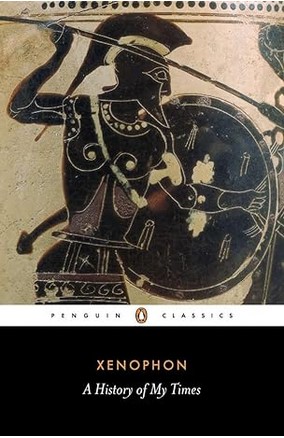
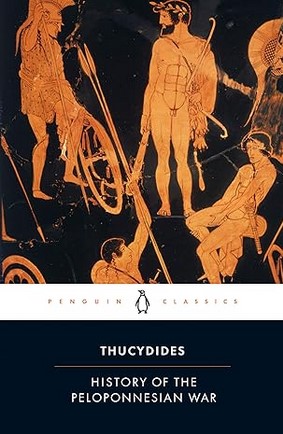
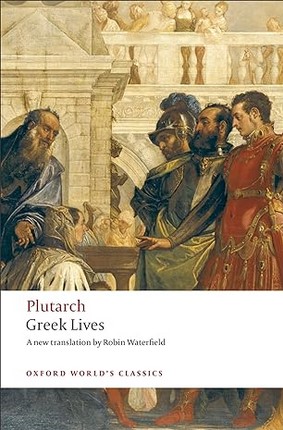




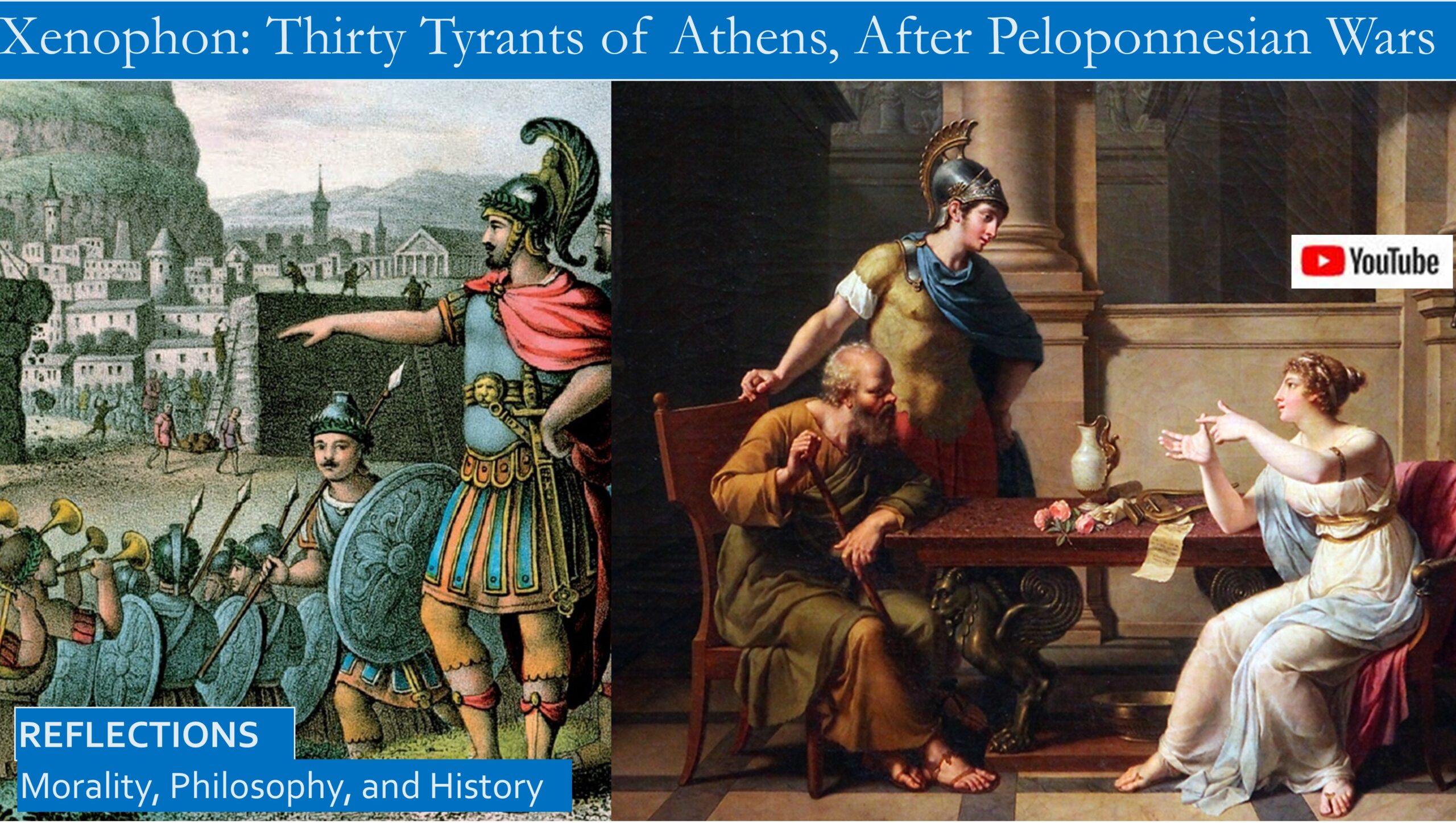
Be the first to comment